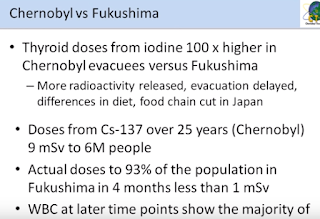The Martians
- György Marx (2001) in 'The Voice of the Martians'
In a curious twist of fate Hungary a not particularly big country and not particularly well known for producing top tier science over a period of about 20 years at the start of the twentieth century produced 9 positively brilliant Jewish mathematicians and scientists who all emigrated to the United States, so statistically odd was all this that they were taken to being called Martians. (An additional nine great minds went to other counties, and are thus not among the 'Martians'.)
Now in our story so far we have:
- a well understood atomic structure
- an idea, that using neutrons to spawn a chain reaction it should be possible to yield a vast amount of energy and
- at the end of the year (1938) the Uranium atom was finally split.
In 1939 Berlin based scientists announced the discovery of atomic fission, this prompted real fears that the NAZI's were on course to develop an atomic bomb. So real was this fear that three 'Martian's' (Leo Szilard, Edward Teller and Eugene Wigner) began to consider methods of advising the Belgian government (then the largest producer of Uranium from their mines in the Congo) to avoid selling Uranium to Germany.
The trio of Martian's approached another Jewish refugee in America, Albert Einstein, who knew the Queen of Belgium. Einstein was unwilling to go to the Queen directly but was willing to write a letter to the Ambassador of Belgium and dictated a first draft to the future Nobel Laureate (1963 in Physics) Eugene Wigner.
Not long after Szilard reached close friend of President Roosevelt, Alexander Sachs. Sachs suggested writing a letter to the President saying "that if we gave him a statement he would make sure it reached Roosevelt in person".
Using Einstein’s draft language to the Belgian Ambassador Szilard wrote a new letter which was brought to Einstein on July 30, 1939, Sachs got the letter (dated August 2) on August 15, some 16 days later World War Two started with the German invasion of Poland on September 1, 1939.
It was not until October 11, 1939 that Sachs was able to meet the President, by that point Szilard had very nearly thrown in the towel and was considering a different messenger. As for the meeting itself, Sachs later noted Our social system is such that any public figure [is] punch-drunk with printer’s ink… I could only do it [get the message to the president] if I could see him for a long stretch and read the material so it came in by way of the ear… Ultimately Sachs never even presented the letter, instead putting forward his own summary.
After hearing Sachs’ summary, the President called in his aide, General Edwin “Pa” Watson, “Pa! This requires action!”
The ultimate irony, the German bomb effort hardly got off the ground. The head of the German program, 1932 Nobel prize in Physics and one of the pioneers of quantum theory, Werner Heisenberg, had made a subtle mistake in his calculations and determined the radius of the uranium core had to be 54cm. (At about 19g/cubic centimeter, Heisenberg calculated the core would have to weigh in at over 9 tons of highly enriched Uranium 235.) There is some debate to this day, was Heisenberg intentionally trying to ensure Germany would never get the bomb or was he simply mistaken in his calculations.
Many of Heisenberg’s contemporaries regard the question of his efforts in Germany’s bomb program as irrelevant, he did work for the NAZI’s even after being given an opportunity to apply for refugee status in America just days prior to the outbreak of war. It was in no small part the respect many American (and Martian) scientists had for Heisenberg that they worked so hard to ensure America got the bomb before Germany did.


Comments
Post a Comment